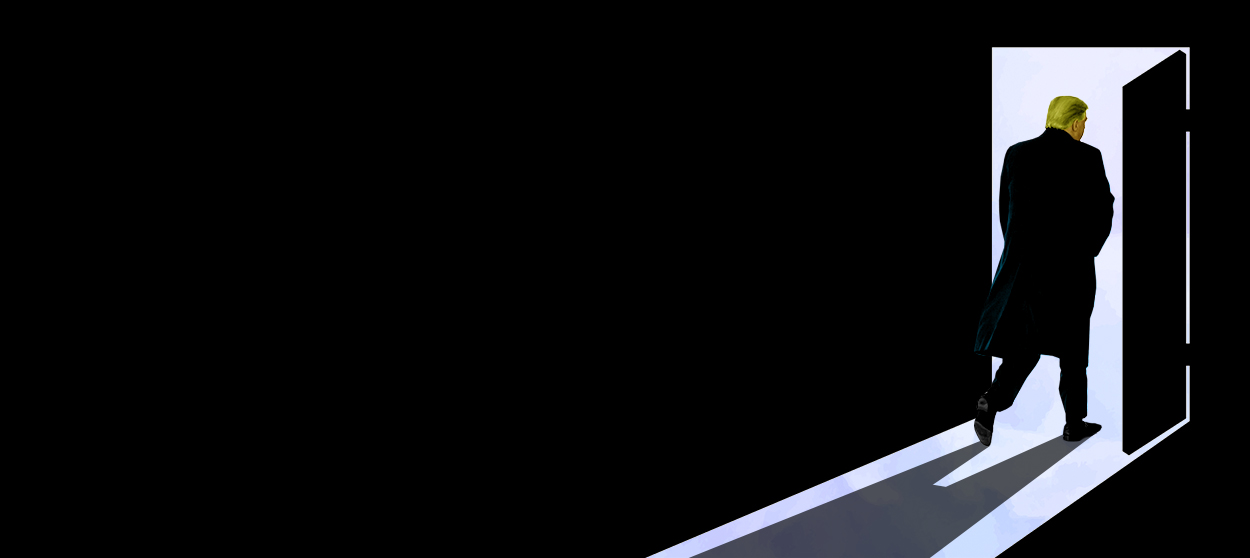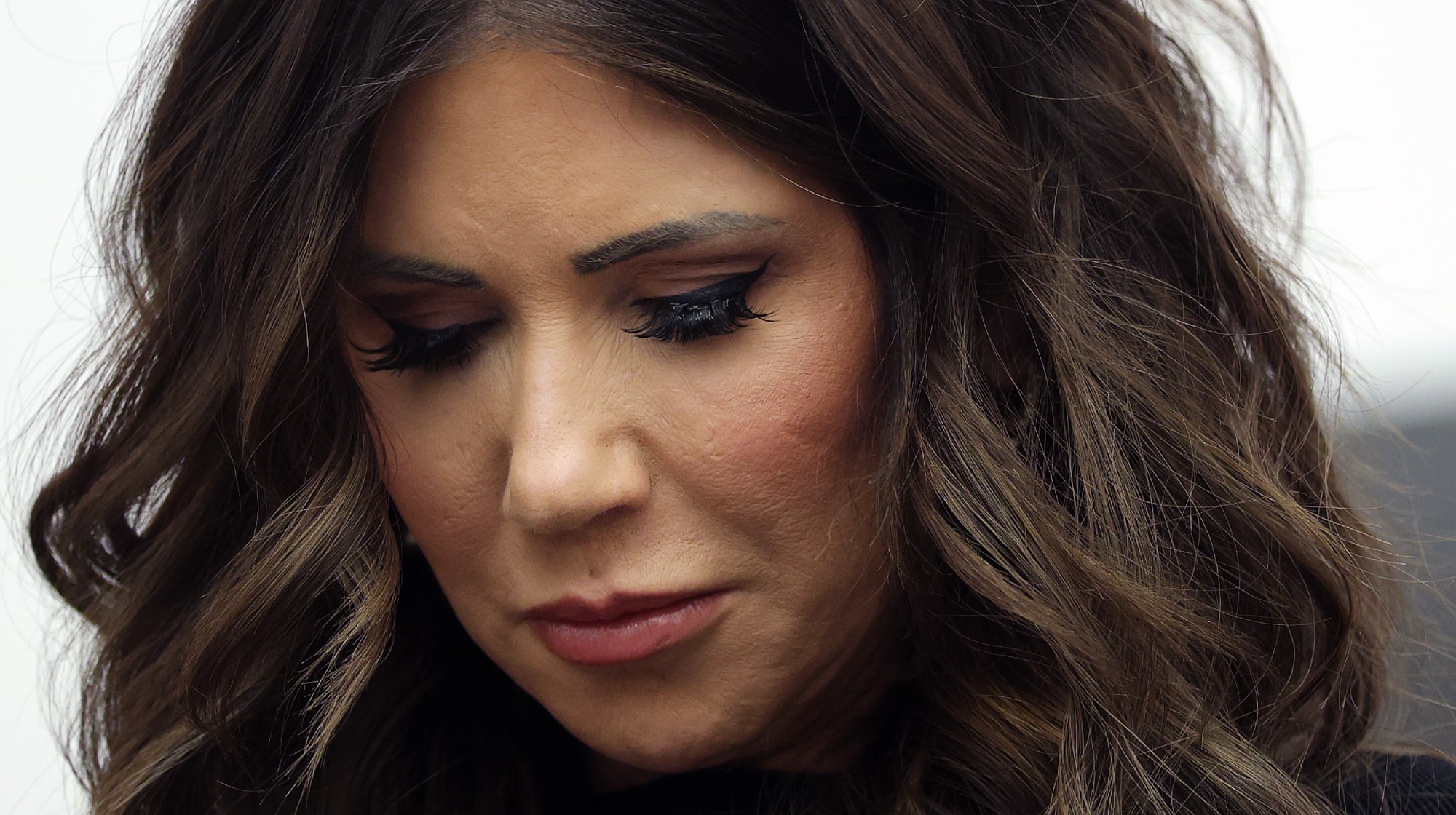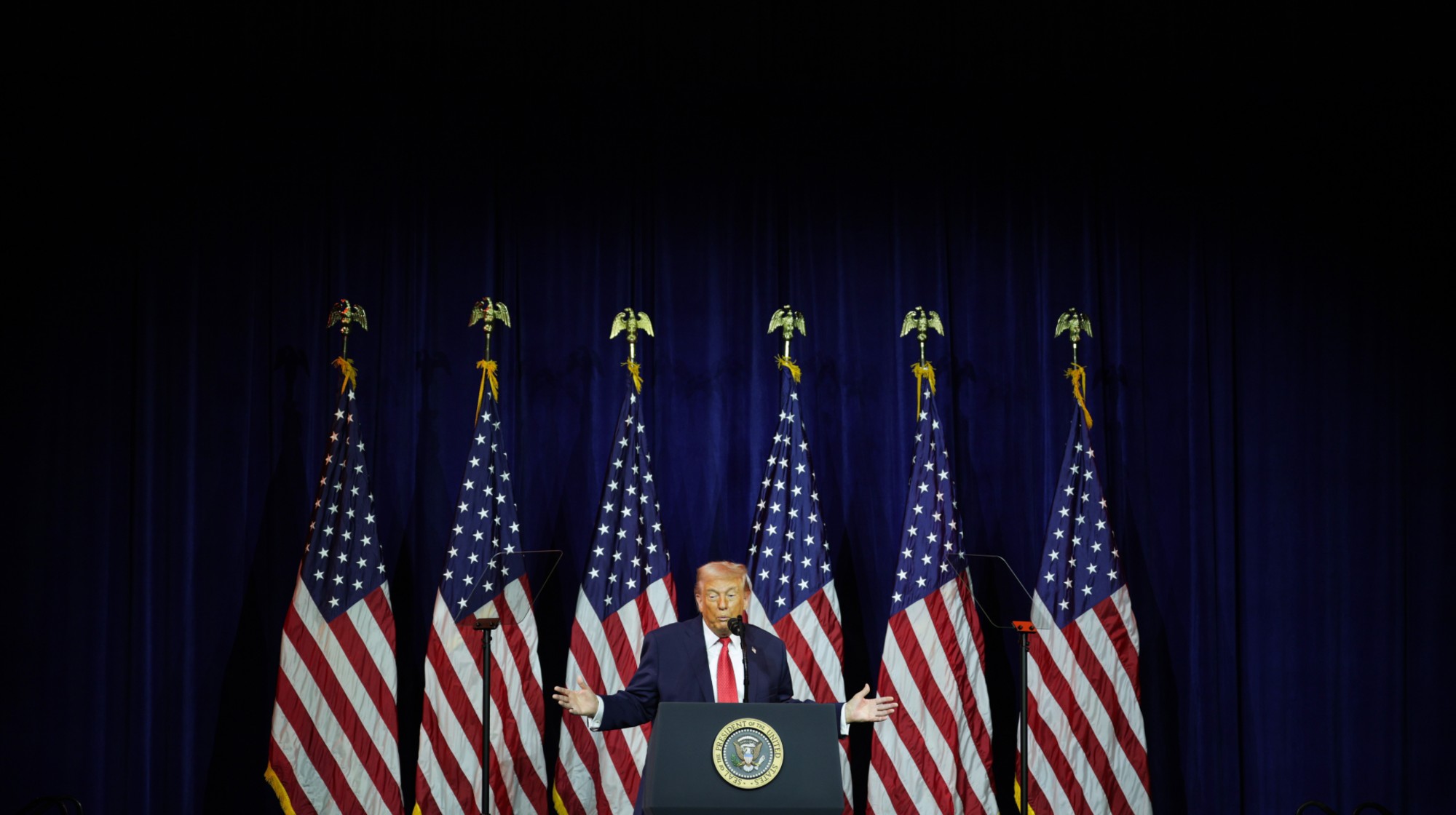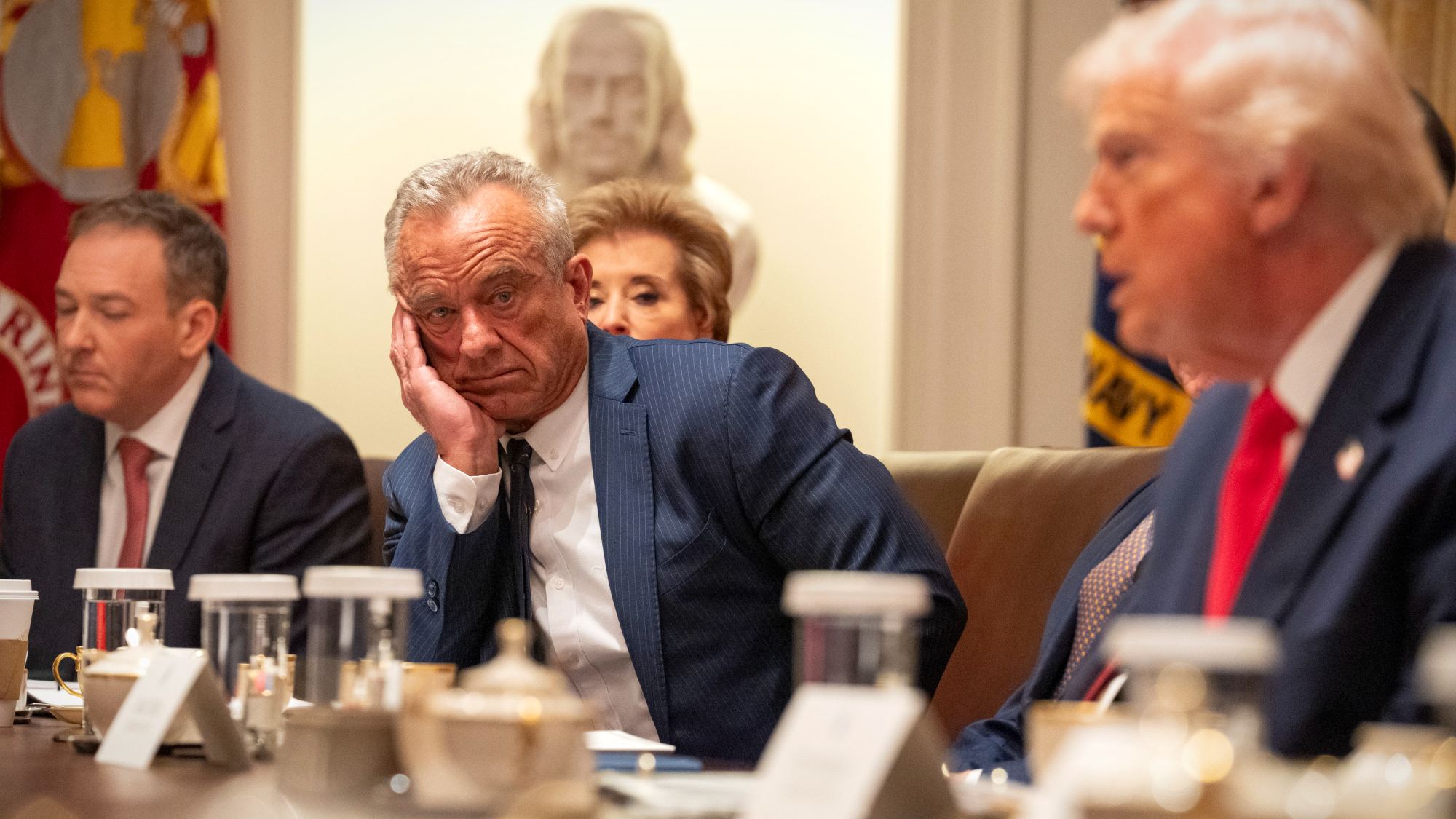The president must be impeached
If the Mueller report doesn't detail obstruction of justice that merits removal from office, we might as well delete the statute altogether


A free daily email with the biggest news stories of the day – and the best features from TheWeek.com
You are now subscribed
Your newsletter sign-up was successful
The long-awaited, 448-page report from Special Counsel Robert Mueller was released, in different versions, to the public and to Congress on Thursday. It contains unambiguously bad news for President Trump.
Despite the weeks-long premature touchdown celebration meltdowns in the wake of Attorney General Bob Barr's cursory March 24 summary by the president and his apologists, replete with preposterous threats to investigate the investigators and pursue vengeance against anyone who dared question the Mad King's machinations, the report very clearly establishes both that while no criminal conspiracy could be proven beyond reasonable doubt, the Trump campaign encouraged and benefited from Russian interference in the 2016 election, and that the president then flagrantly and repeatedly obstructed justice in an effort to conceal that collusion from public view during the subsequent investigation. It reads like an indictment because that's basically what it is. The Trump team has been partying on the 20-yard line.
It is not for me to split legal hairs in this document. But politically, the road forward from this report is obvious: President Trump must be impeached in the House of Representatives. It does not matter that his conviction in the Senate is vanishingly unlikely. America's political moment now unambiguously calls for a prolonged, painful, and public hearing about the lawlessness of the president of the United States and his immoral and illegal efforts to bend America's system of justice to his ill will. Democrats and analysts who for years have been saying that we have to wait for the Mueller report now have to climb down off the fence they've been straddling so very carefully. We have the Mueller report now. It's real bad — basically as bad as it could have been outside the realm of lunatic conspiracy theories.
The Week
Escape your echo chamber. Get the facts behind the news, plus analysis from multiple perspectives.

Sign up for The Week's Free Newsletters
From our morning news briefing to a weekly Good News Newsletter, get the best of The Week delivered directly to your inbox.
From our morning news briefing to a weekly Good News Newsletter, get the best of The Week delivered directly to your inbox.
Those who worry that the president's presumed acquittal in the Senate may provide him with a boost at a critical moment in the 2020 campaign should, instead of hand-wringing about political fallout, commit themselves to standing up for the integrity of the constitutional order and creating a public record of the president's crimes and misdemeanors for posterity.
Even a cursory reading of Mueller's findings suggests that the special counsel's office believes that Congress should take up these proceedings and that no statute prevents Congress from holding the president accountable for his crimes. Mueller even spends considerable time dismantling the president's legal arguments — shared by Barr — about how he could not have committed obstruction of justice. He finds that the Trump team's position on obstruction is "contrary to the litigating position of the Department of Justice and is not supported by principles of statutory construction." Why would Mueller go to such great lengths to demonstrate that the president could have obstructed justice if he didn't fundamentally think that it happened?
It has been obvious from the moment that President Trump fired FBI Director James Comey on May 9, 2017, that the president's public conduct alone was fundamentally corrupt and sufficient to remove him from office. Mueller's report details much that was already known about Trump's meddling in the investigation and his campaign's relationship to the Russian interference operation, and adds previously unreported details and prosecutorial flair to build an incredibly damning case against the president. That the report stops short of explicitly calling for impeachment is a detail that must be considered in light of Mueller's preference for Congress to be the ultimate arbiter of whether the president's behavior merits a trial. It also seems screamingly obvious that Bob Barr is very much not the person Mueller imagined making these determinations.
The report details multiple episodes of obstructive conduct. The focus of discussion in the coming weeks and months is likely to center around Trump's firing of FBI Director James Comey, his repeated efforts to have the special counsel fired, his vicious broadsides against former Attorney General Jeff Sessions as part of an effort to curtail the investigation, his attempts to cover up and misrepresent the infamous June 9, 2016, Trump Tower meeting, and his machinations to tamper with or influence the testimony of the president's former lawyer Michael Cohen.
A free daily email with the biggest news stories of the day – and the best features from TheWeek.com
Perhaps the most damaging episode for the president comes after Comey's firing. Informed by Sessions that a special counsel had been appointed, Trump reportedly remarked ""Oh my God. This is terrible. This is the end of my presidency. I'm f---ed." President Trump's belief that the probe was a threat to his presidency provides the clearest evidence yet — apart from the thousands of angry tweets fired off from his Twitter account — that he had a motive to interfere with the Mueller probe that goes far beyond the allegedly mitigating "context" that Attorney General Barr pitifully used to excuse the president's conduct.
The president furthermore ordered former White House Counsel Don McGahn to end the Mueller probe. McGahn refused to do so, and Trump pressured him to lie about it, which was one of many instances in which the president's besieged advisors prevented him from doing something illegal. Or as the report puts it, "The president's efforts to influence the investigation were mostly unsuccessful, but that is largely because the persons who surrounded the president declined to carry out orders or accede to his requests." The president desperately wanted to do crimes, but couldn't find anyone to help him. But the report is very clear about how the president ordering people to break the law is illegal even if they don't do it.
The report again and again hammers home the theme that the president's interference with the investigation cannot be excused by his underlying beliefs about the probe's legitimacy. Take for example, how it discusses Trump's efforts to get Sessions to walk back his decision to recuse himself from the probe. "The inquiry would not turn on what Attorney General Sessions would actually do if unrecused, but on whether the efforts to reverse his recusal would naturally have had the effect of impeding Russia's investigation." In other words, even if Sessions would in the end have let the Mueller investigation meander its way to a conclusion without laying a glove on it, the president clearly intended for Sessions to put a stop to it.
That, folks, is obstruction of justice. That the president did most of his obstruction in plain view of his Twitter minions or the cameras and microphones of the national press does not make it any more legal. It just makes it more shameless.
Later, the report notes that "Obstruction of justice can be motivated by a desire to protect non-criminal personal interests, to protect against investigations where underlying criminal liability falls into a grey area, or to avoid personal embarrassment. The injury to the integrity of the justice system is the same regardless of whether a person committed an underlying wrong."
Mueller and his team could not be clearer here — the president obstructed justice. Despite Attorney General Barr's bizarre contention in this morning's press conference that doing so was not possible because the president was upset and believed he had not committed a crime prior to the investigation.
For Democrats to not proceed to an impeachment in the House would be an act of unparalleled moral cowardice, whose silence would serve as a permission slip for future leaders to commit crimes in full public view with total impunity. That is to say nothing of the message that capitulation would send to the malevolent and unhinged President Trump himself, who could then proceed to add a frosty layer of additional crimes to the pound cake of illegality he has already baked. And it is no certainty that impeachment will benefit the president if the Senate, as seems certain, fails to convict him and remove him from office.
The entire edifice of public commentary on the political ramifications of impeachment is built on the very rickety foundation of the 20-year-old Bill Clinton saga. Then, congressional Republicans ran into the steel-slatted fencing of Clinton's overwhelming popularity, as well as the widely shared perception that Clinton's lies about an extra-marital affair did not rise to the standard of impeachment. A less polarized electorate seemingly punished the GOP for its overreach in the 1998 midterms.
The obvious difference here is twofold. First, even if you believe that President Clinton should have resigned, what President Trump has done over the past two years is orders of magnitude worse — more corrupt, more negatively consequential for the future of the constitutional order, and more brazenly impudent in its total disregard for the dignity of the presidency. Second, President Trump is not remotely popular and thus has no pre-existing electoral majority to rally to his defense next year. The impact of an impeachment saga at worst would be a wash for Democrats, particularly because the whole thing will likely conclude long before the election kicks into gear.
The bottom line is this: If this report doesn't detail obstruction of justice that merits removal from office, we might as well delete the statute altogether. And if today's Democrats aren't willing to act on it, they should be replaced by ones who will.
David Faris is a professor of political science at Roosevelt University and the author of "It's Time to Fight Dirty: How Democrats Can Build a Lasting Majority in American Politics." He's a frequent contributor to Newsweek and Slate, and his work has appeared in The Washington Post, The New Republic and The Nation, among others.
-
 Crisis in Cuba: a ‘golden opportunity’ for Washington?
Crisis in Cuba: a ‘golden opportunity’ for Washington?Talking Point The Trump administration is applying the pressure, and with Latin America swinging to the right, Havana is becoming more ‘politically isolated’
-
 5 thoroughly redacted cartoons about Pam Bondi protecting predators
5 thoroughly redacted cartoons about Pam Bondi protecting predatorsCartoons Artists take on the real victim, types of protection, and more
-
 Palestine Action and the trouble with defining terrorism
Palestine Action and the trouble with defining terrorismIn the Spotlight The issues with proscribing the group ‘became apparent as soon as the police began putting it into practice’
-
 Democrats pledge Noem impeachment if not fired
Democrats pledge Noem impeachment if not firedSpeed Read Trump is publicly defending the Homeland Security secretary
-
 The billionaires’ wealth tax: a catastrophe for California?
The billionaires’ wealth tax: a catastrophe for California?Talking Point Peter Thiel and Larry Page preparing to change state residency
-
 Trump fears impeachment if GOP loses midterms
Trump fears impeachment if GOP loses midtermsSpeed Read ‘You got to win the midterms,’ the president said
-
 Bari Weiss’ ‘60 Minutes’ scandal is about more than one report
Bari Weiss’ ‘60 Minutes’ scandal is about more than one reportIN THE SPOTLIGHT By blocking an approved segment on a controversial prison holding US deportees in El Salvador, the editor-in-chief of CBS News has become the main story
-
 Democrat files to impeach RFK Jr.
Democrat files to impeach RFK Jr.Speed Read Rep. Haley Stevens filed articles of impeachment against Health and Human Services Secretary Robert F. Kennedy Jr.
-
 Has Zohran Mamdani shown the Democrats how to win again?
Has Zohran Mamdani shown the Democrats how to win again?Today’s Big Question New York City mayoral election touted as victory for left-wing populists but moderate centrist wins elsewhere present more complex path for Democratic Party
-
 Millions turn out for anti-Trump ‘No Kings’ rallies
Millions turn out for anti-Trump ‘No Kings’ ralliesSpeed Read An estimated 7 million people participated, 2 million more than at the first ‘No Kings’ protest in June
-
 Ghislaine Maxwell: angling for a Trump pardon
Ghislaine Maxwell: angling for a Trump pardonTalking Point Convicted sex trafficker's testimony could shed new light on president's links to Jeffrey Epstein
